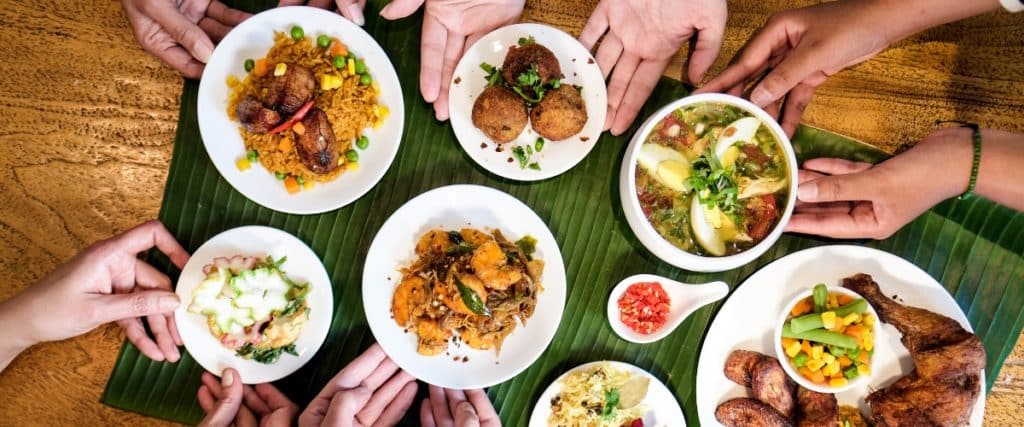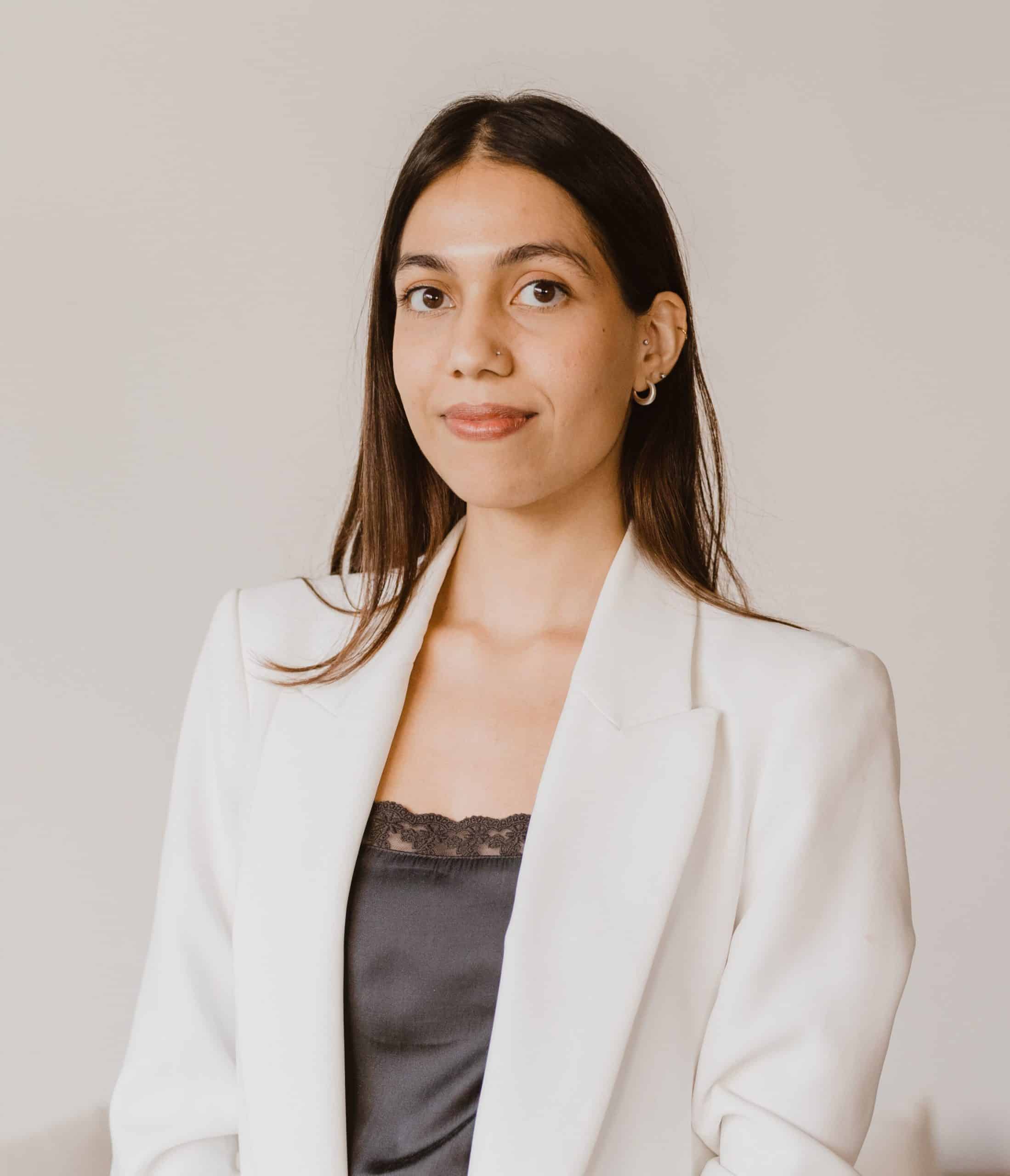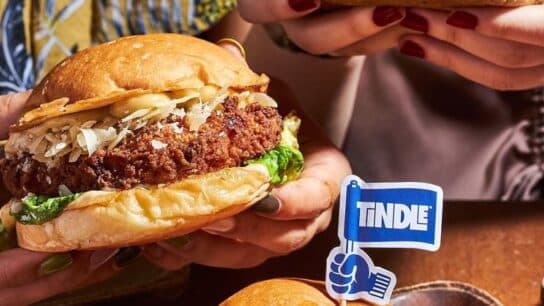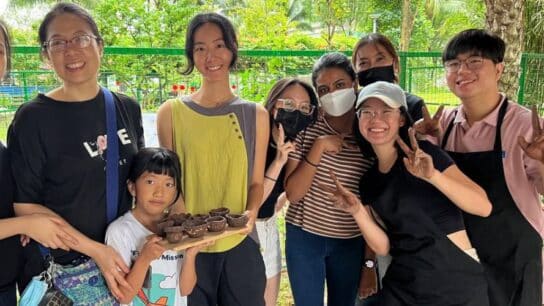Meet Tegan Smyth, the legal specialist, social advocate, and founder of Hong Kong-based nonprofit for refugees and migrants, Grassroots Future, committed to combating issues faced by the diasporic community and destigmatising their narrative.
Australian-born Tegan Smyth has valuable experience working with the refugee and migrant communities in both her home country and Hong Kong. With a desire to advocate change, Tegan founded the nonprofit organisation Grassroots Future in Hong Kong to support and empower the city’s most vulnerable groups. The nonprofit addresses major areas of concern, tackling them from within a community.
Tegan began to shift the narrative on grassroots communities through organising various asylum seeker and refugee-led initiatives, including one of their successful undertaking- Table of Two Cities. Besides running Grassroots Future round-the-clock, Tegan has built an impressive portfolio as a social entrepreneur specialising in legalities, compliance, and finance.

Leading a plethora of initiatives through educating, fundraising, and storytelling, the grassroots foundation made its mark, and inaugurated Hong Kong’s first Refugee Week festival in June 2022.
Hive Life spoke with the Founder and Director of Grassroots Future about the struggles endured by the refugee and asylum seeker community in Kong Kong, her experiences in the area, and how her charity is involved in destigmatising the space and enacting change.

How did you come to found Grassroots Future?
I am an Australian-qualified lawyer. I have been based in Hong Kong for over eight years. I founded Grassroots Future in 2016, and in September 2020 we got our charity status after several years of organising community initiatives with refugee and asylum seekers in Hong Kong.
At Grassroots Future, we work with refugees and organisations, and initiatives to help them build capacity. We co-create most of these initiatives with the community based on our three pillars which are education, community outreach, and well-being.
One of our long-term partners is the Refugee Union, which is Hong Kong’s first refugee-led society. Most of the initiatives and direct beneficiaries that we run are [in collaboration] with them.

Prior to founding Grassroots Future, what was your background professionally?
I did my training in Sydney, Australia at the legal community centre, which operated as a legal aid clearing house for [nonprofit service referrals]. My target group was refugees and new migrants.
When I moved to Hong Kong, since I have only committed to practising in Australia, I went in-house with a bank. A large part of my professional experience in Hong Kong has since been in legal and compliance, inside different financial institutions.

How did you pivot from being a lawyer to establishing a nonprofit organisation?
It was not quite instantaneous. When I first got back in 2014, I personally spent a considerable time volunteering and meeting people from different charities and areas- not just the refugee community- as I wanted to better understand the landscape here, and see where is the best-added value.
The reason why I started community organising in the refugee space, in particular, was mostly informed by my background and legal training, also through the recognition of the gap between the general public’s [perspective and attitude toward] refugees.
That is why I did not initiate anything legally dominated despite my background, as what I saw was a major disconnect in terms of the way the media [portrays] refugees, and the fact that what had been successful in other countries were actually food initiatives, where refugees have been centred in some part of the narrative.
I started the “Table of Two Cities” food project looking to provide opportunities for refugees to tell their stories in their own words, while showcasing their talents in the culinary arts and [other areas].

What was it like growing into a registered charity?
The big thing was that we had started to grow and scale our projects and initiatives. It was not sustainable for us to just stop those initiatives- we needed to pace it up, and operate most of it as a local charity – in the long run, it is more easy and more practical for organising fundraising activities and supporting ourselves.
The refugees and migrants required assistance, in particular financial aid for their children’s textbook fees. Hence, we organised different events, through which we helped other charities, and represented organisations, such as the Refugee Union, where we raised funds to support textbook fees.

Why is there a greater need for the local community to address issues concerning refugees and new migrants to Hong Kong?
It is multi-layered- unlike other places where refugees may be processed for a fairly short period of time, until they move on to the third country – the third country being the settlement country, and the second is often the intermediary [entry point] for refugees.
People that come to Hong Kong seeking asylum are [normally] here for a long time, often decades, so, when a person is in a country for a [great] length of time, they [become] embedded in the community whether people want to hear it or not.
We believe that a more effective use of our charity is to give people a platform to share their own words to help create meaningful interactions.

How has Grassroots Future utilised this narrative of sharing culture through food in creating a positive impact and advocating change for the refugee community?
The biggest takeaway is, when I started doing this in 2016, there were no food initiatives for refugees. I have seen some charities hosting private lunches or commercial dinner events, with not much consolidated effort to collect stories and narratives.
In recognition of the fact that this is something different, there is an appetite for such storytelling [initiatives], and people are interested in knowing the deeper meaning behind things.
The fact that there are other initiatives that have started since suggests that there is more understanding in society, and a [greater desire] for people to engage with these communities.

What change do you envision Grassroots Future bringing?
Even though I have been doing this work for a while, I make no assumptions about what I know. Since we started, we have consulted closely with the Refugee Union and other stakeholders from the community in various working groups and capacities, to identify what people needed at a given time and have the flexibility to adapt to those [needs].
As we operated through Covid, that reformed most of what we have done. We started by building our wellbeing initiatives [supported] by the Yoga Mandala Project- they train yoga teachers to carry out [workshops with] refugees and asylum seekers.

How do you wish to change the narrative for refugees and new migrants in Hong Kong?
The narrative is always at the forefront of my mind and the main thing is that we do not see the same type of media coverage.
My organisation, along with my peers in this space, have done plenty of work to have different types of stories being told. We held Hong Kong’s first Refugee Week in June- which is a rather significant month for refugee-focused issues and had different involvement from various local charities, including Branches of Hope, Justice Centre, Run Hong Kong, and the UN High Commissioner for Refugees (UNHCR). We are looking to run Refugee Week in 2023 as well.
Changing the narrative is a gradual thing, and does not happen overnight. As the media landscape changes, people are getting more nuanced in terms of reporting. It comes from multiple stewards of refugee issues, and those who have worked hard to change the way we talk about the community.

How has Grassroots Future facilitated education to shift the attitudes of the local community?
With the events we host, we try to create all of our external activities with the community themselves. It is critical that people are consulted on what their role is to [better] shape the outcomes.
Subtly, we are educating people about the importance of [hosting community initiatives], but it is simply not enough anymore to run an event where you are only raising awareness, as it brings to question- what is our next step?
By demonstrating that everyone has a story rather than speaking on the behalf of the community, we have effectively shifted the attitude and educated people by [changing the narrative].

How does Grassroots Future forge connections within the community?
Within the community itself, we work with a few refugee leaders, such as the Refugee Union, [as they] operate more within the community centre. We recognise [the gap] caused by institutional barriers, and [capital constraints], and [due to the fact] that they cannot open their own company bank account, develop their own programme, or apply for grants.
We value our relationships with stakeholders, and that is where we might be introduced to different individuals in the community.

What were some of the major challenges you endured in driving involvement and growing Grassroots Future?
We are volunteer-driven- they assist us with different things, and we do not have many [full-time] staff on our team, as we have restricted funding.
Starting a new [initiative] in the pandemic has been quite hard, and that plays a significant role in our [fundraising] and outreach. The way that we have worked around this is by collaborating with larger organisations to form [mutually] beneficial partnerships where we help each other.
There has been a real systemic issue with the Covid pandemic. This [not only affected] Grassroots Future, but also, from what I have seen, virtually any refugee, migrant, and domestic worker charities.
Since the [refugee] community is reliant on a monthly allowance they receive from the Social Welfare Department, and as offices had to close for a period of time, it has been [quite hard for many who] were not able to get assistance.
Another big pain point is that most of our work with the community happens face-to-face. We are our small organisation but through resource-sharing, [great change] can take place.

What are some meaningful partnerships you have initiated with Grassroots Future?
We partnered with Breadline, which is a bread recovery service, they collect the [food surplus] that the bakery throws out at the end. They [supply] food for the us twice a week. We have also partnered with the community kitchen which provides hot meals. [Such initiatives] are driven by necessity, as it is luxury [for those] who are not able to eat well.
Another enduring partnership we have had was with Wise HK, a sports NGO. They offer [physical] education, and is a sports outlet for low-income women and young girls.
There is a great knowledge input we get from partners, helping us deliver the best possible assistance to people.
xxx
What are some takeaways you gained through your experiences working with refugees and asylum seekers?
When you work with the community, you realise that people have a lot of expertise and domain experience. They might have worked professionally in their home country, or can be quite savvy when it comes to cooking or designing [recipes]. That’s something that all of us do. These communities are often unable to engage others, as they are simply trying to survive here.
The biggest takeaway for me was to not make assumptions about what I think or know about their needs. It is about going out in the community, asking questions, and remaining humble, as there is always a learning experience or teaching that comes from with the engagement.

What message do you have for first-time volunteers and donors who wish to connect and support the cause?
The story of migration touches all of us. We are all from somewhere, represent something, and want to be respected for who we are. Being able to offer refugees and asylum seekers a space at the table, we should keep in mind that life is a warfare, and things could change anytime; it is vital that we treat each other with respect.
If you are interested in engaging with our events, or are looking to volunteer, feel free to reach out to us.

What is next for Grassroots Future?
We have not got anything in stone yet, but we will be [hosting] Refugee Week in 2023. If people wish to stay posted and join our events, they can follow us on social media.
Related Articles
Honour Breast Cancer Awareness Month with These Charitable Organisations and Causes
8 Animal Shelters in Hong Kong to Adopt Your Next Pet From and Support





